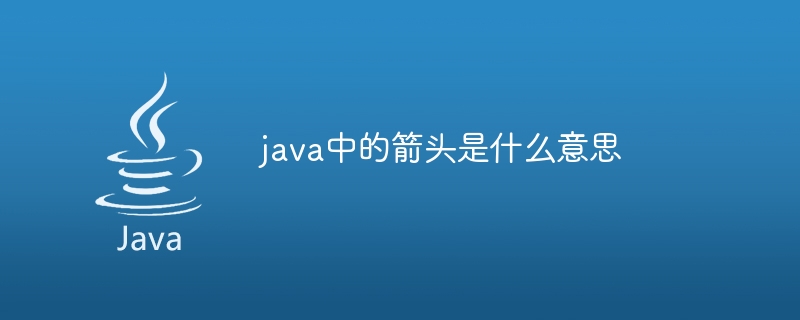
The arrow (->) in Java represents an anonymous inner class, an inner class that does not need to declare a name, to simplify the code: Syntax: new OuterClass() { // Code for anonymous inner classes} Usage : Implement interface Extend abstract class Create event handler

Arrow (->) in Java
The arrow (->) represents an anonymous inner class in Java.
Anonymous inner class is an inner class that does not need to declare a name. It is usually used to simplify code and avoid creating separate class files.
Syntax:
new OuterClass() {
// 匿名内部类的代码
};Usage:
Anonymous inner classes are usually used when one-time classes need to be created and used quickly Scenarios, for example:
For example:
The following is an example of using an anonymous inner class to implement the Runnable interface:
Thread thread = new Thread(new Runnable() {
@Override
public void run() {
// 线程要执行的任务
}
});Anonymous inner A class can access non-private member variables and methods in its outer class. You must be careful when modifying non-final variables in anonymous inner classes, as this may cause thread safety issues.
The above is the detailed content of What does arrow mean in java. For more information, please follow other related articles on the PHP Chinese website!




